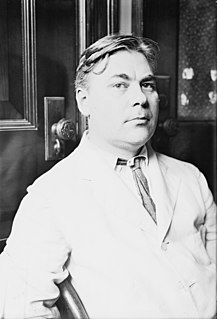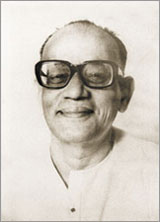A Quote by Henry David Thoreau
No man ever stood the lower in my estimation for having a patch in his clothes: yet I am sure that there is greater anxiety, commonly, to have fashionable, or at least clean and unpatched clothes, than to have a sound conscience.
Related Quotes
The liberated man is not the one who is freed in his ideal reality, his inner truth, or his transparency; he is the man who changes spaces, who circulates, who changes sex, clothes, and habits according to fashion, rather than morality, and who changes opinions not as his conscience dictates but in response to opinion polls.
Patch was dressed in the usual: black shirt, black jeans and a thin silver necklace that flashed against his dark complexion. His sleeves were pushed up his forearms, and I could see his muscles working as he punched buttons. He was tall and lean and hard, and I wouldn't have been surprised if under his clothes he bore several scars, souvenirs from street fights and other reckless behavior. Not that I wanted a look under his clothes.
A dandy is a clothes-wearing man--a man whose trade, office, and existence consist in the wearing of clothes. Every faculty of his soul, spirit, person and purse is heroically consecrated to this one object--the wearing of clothes, wisely and well; so that, as others dress to live, he lives to dress.
I tell Thee that man is tormented by no greater anxiety than to find someone quickly to whom he can hand over that gift of freedom with which the ill-fated creatures is born. But only one who can appease their conscience can take over their freedom […] Instead of taking men's freedom from them, Thou didst make it greater than ever! Didst Thou forget that man prefers peace, and even death, to freedom of choice in the knowledge of good and evil?
In a way, Che Guevara's fate was far worse than Simon Bolivar's. Guevara's collapse was complete: his intentions were forgotten, but his style was taken up by boutique owners (one of the fanciest clothes stores in London is called Che Guevara). There is no faster way of destroying a man or mocking his ideas than making him fashionable. That Che succeeded in influencing dress-designers was part of his tragedy.
Who ever saw his old clothes, - his old coat, actually worn out, resolved into its primitive elements, so that it was not a deed of charity to bestow it on some poor boy, by him perchance to be bestowed on some poorer still, or shall we say richer, who could do with less? I say, beware of all enterprises that require new clothes, and not rather a new wearer of clothes.


































